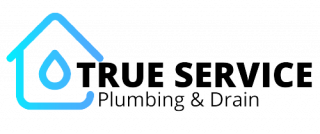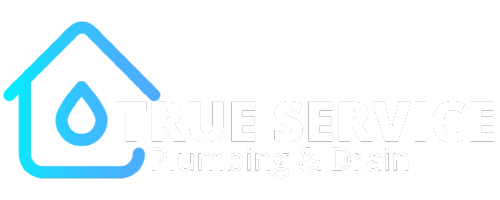Many homeowners wonder, can I flush soup down the toilet?
It might seem harmless since soup is mostly liquid, but flushing it can lead to serious plumbing issues.
While modern toilets handle water and waste efficiently, they are not designed for food disposal.
If you’ve ever thought about pouring leftover soup down the toilet to avoid a smelly trash can, you’re not alone.
However, improper disposal of food waste, especially liquid-based foods, can cause blockages, damage your plumbing, and even impact municipal sewage systems.
In this post, we’ll explore what happens when you flush soup, why it’s problematic, and the best ways to dispose of it without harming your home’s plumbing system.
What Happens When You Flush Soup Down the Toilet?
Flushing soup might seem like a simple way to get rid of leftovers, but it can cause serious plumbing problems.
Here’s why:
- Pipes are not designed for food waste – Unlike kitchen sinks with garbage disposals, toilets are meant to handle human waste and toilet paper. Food particles and grease can easily accumulate in pipes.
- Thick or starchy soups create blockages – Creamy soups, stews, and chowders leave behind sticky residues that cling to pipe walls, increasing the risk of clogs.
- Grease and fats solidify in cold pipes – If the soup contains oils, butter, or animal fat, these substances can harden inside the pipes, leading to slow drainage and blockages.
- Solid ingredients don’t break down – Rice, pasta, vegetables, and meat chunks in soup can settle in the plumbing system, eventually causing obstructions.
- Sewage system overload – Municipal treatment plants are not designed to process large amounts of food waste, leading to inefficiencies and potential environmental damage.
Why Flushing Soup Can Damage Your Plumbing
1. Grease and Fats Can Harden in Pipes
Many soups contain grease, cream, or butter.
When poured down the toilet, these fats may stay in liquid form temporarily, but they will cool and solidify once they reach the colder pipes.
Over time, this buildup restricts water flow and can create stubborn blockages.
2. Solid Ingredients Can Cause Clogs
Even though soup seems liquid, many contain solid food particles like:
- Meat
- Vegetables
- Rice or pasta
- Beans
- Bones
These materials do not dissolve and can collect inside pipes, forming clogs that require professional intervention.
3. Thick Soups Leave Sticky Residue
Soups like chowder, bisque, and pureed vegetable soups contain starches and dairy products that create a sticky film inside pipes.
Over time, this residue builds up and attracts more debris, increasing the risk of blockages.
4. Wastewater Treatment Issues
When food waste enters the sewage system, it can cause problems beyond your home.
Municipal wastewater treatment plants are not designed to handle large amounts of food waste.
Excess fats, oils, and solids contribute to fatbergs—large, hardened blockages that disrupt sewer systems and cause expensive repairs.
When Is It Safe to Flush Liquids Down the Toilet?
Not all liquids are harmful to your plumbing system. Safe liquids include:
- Urine
- Water
- Other bodily fluids
However, it’s best to avoid flushing anything else, including:
- Soup (even brothy or clear soup)
- Coffee grounds or tea leaves
- Dairy-based liquids
- Cooking oils and grease
These substances can cause plumbing issues that lead to costly repairs.
How to Properly Dispose of Leftover Soup
Instead of flushing soup down the toilet, try these disposal methods:
1. Pour It into the Trash (After Cooling)
- Allow the soup to cool before disposing of it.
- If the soup contains large chunks, strain the solids into the trash first.
- Pour the remaining liquid into a sealable container before tossing it in the trash.
2. Use a Sink with a Garbage Disposal
- If your kitchen sink has a garbage disposal, small bits of food waste can be processed properly.
- Avoid pouring greasy or creamy soups down the drain, as they can still clog pipes.
3. Composting (For Certain Soups)
- Vegetable-based soups without excess salt, oil, or dairy can be composted.
- Strain out solids and add them to a compost bin.
4. Drain Safe Liquids Only
- If you must dispose of soup in the sink, ensure it’s well-strained with no solid ingredients.
- Flush with plenty of water to prevent buildup.
Signs That Flushing Soup Has Damaged Your Plumbing
If you’ve flushed soup down the toilet in the past, you may notice these warning signs:
- Slow draining toilets – A partial blockage may be forming.
- Gurgling sounds – Trapped air due to a clog can create unusual noises.
- Foul odors from drains – Decomposing food particles can cause unpleasant smells.
- Water backing up – If flushing the toilet causes water to rise in other drains, you may have a serious blockage.
If you notice any of these issues, call a professional plumber before the problem worsens.
Final Thoughts: Protect Your Plumbing System
Flushing soup down the toilet might seem like a convenient option, but it can lead to costly plumbing repairs.
From grease buildup to clogged pipes and wastewater treatment issues, improper disposal of food waste can create long-term problems.
Instead, use proper disposal methods like pouring cooled soup into the trash, using a garbage disposal, or composting when possible.
Keeping your plumbing system in good shape starts with smart waste management.
Professional Plumbing Services with True Service Plumbing
At True Service Plumbing, we help homeowners in Toronto and the GTA keep their plumbing systems running smoothly.
Whether you’re dealing with clogged pipes, slow drains, or sewage backups, our licensed professionals provide expert solutions for both residential and commercial plumbing needs.
Don’t let improper disposal habits lead to costly repairs.
Contact True Service Plumbing today for reliable plumbing services and expert advice on keeping your pipes clear and clog-free.


